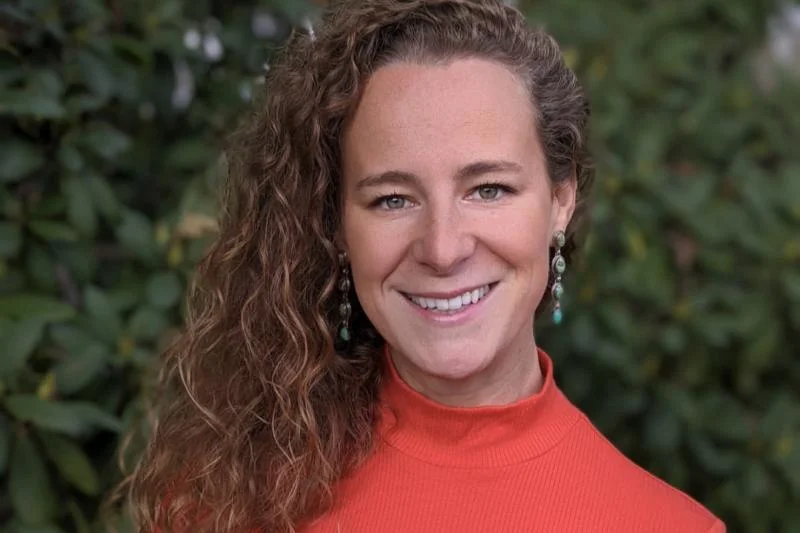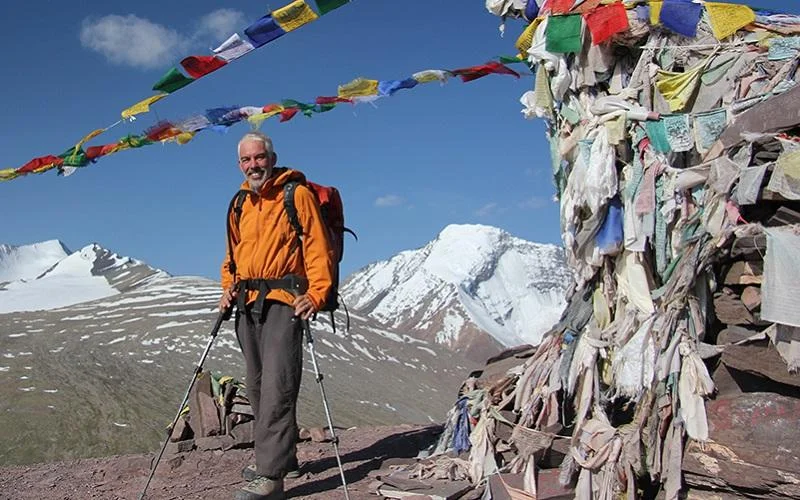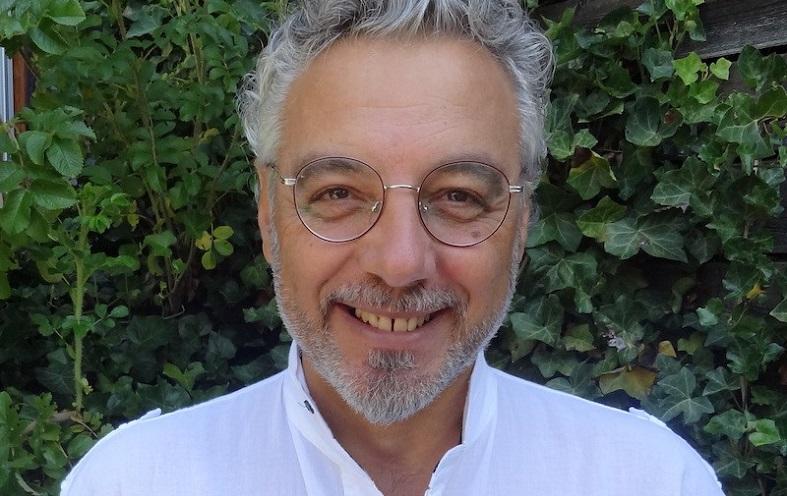
Benjamin Lephilibert didn’t always care about sustainability in tourism. But the topic grew on him when working for a large hotel chain in Bangkok. Fast forward, the director of Light Blue Environmental Consulting has become a global reference for hotel sustainability, especially tackling food waste. We caught up with Benjamin to hear his story – the successes, frustrations and lessons learned. He also shares his thoughts on the trends in the global hospitality industry right now, and has some advice for hoteliers on how to get started.
Benjamin, sustainability is now a key topic for most hotels, but it wasn’t always that way. Do you remember the first time you came across sustainability in connection with tourism? What triggered your interest?
Yes, I remember this very well. I actually randomly ended up in Thailand looking for a job, knocking on companies’ doors. I also went to ACCOR, which was at their regional office here in Bangkok. During the conversation with the HR director we talked about my working experience, which was actually working with my dad, who distributed agro-chemicals. Then I said to the guy, I was feeling a bit more eco-conscious and then he said: ‘Oh that’s interesting’.
And there was a position that opened a couple of days before our interview [related to sustainability]. He said: ‘this is what it is, are you interested?’ And I said; ‘Yes that’s great’. So that’s how I got into it.
Initially I wasn’t really into it. I wasn’t born into sustainability from day one, but it definitely grew on me big time.
Looking back, how have your views on tourism and sustainability changed over time?
Well, dramatically. I think it started with a very naïve perspective on the sustainability agenda. I thought things would move forward very quickly. The more I was confronted with the reality of the situation in the field, specifically hotels, the more I realized we are evolving in a very cynical kind of world and the industry in particular. There are very few players who are actually doing it in a genuine way.
It is sad and discouraging to a certain extent, and so my views have changed a lot on tourism and sustainability. At the same time, I see so many opportunities that remain untapped, that are not done properly, done halfway or being stopped, which is sad. So it’s a mix of feelings between despair and hope.
As Director of Light Blue Environmental Consulting, in a nutshell, how does the company support tourism businesses?
Within the tourism industry, we are directly working with hotels and restaurants. How we are supporting them? We have several aspects of operations we can help improve – from support to certification (Green Globe, Travelife, Green Key), to more specific energy and water audits, and waste management. We do more and more practical workshops, training and campaigns related to specific SDG too.
Our strongest skills are on food waste and food waste prevention, and in the restaurant industry as well were we support leading restaurants achieve ThePLEDGEonFoodWaste. This is what we do, in a nutshell.
To your mind, which issues or challenges do hotels struggle most with, linked to tourism sustainability – for example in Thailand or the wider Asia region?
The first thing that comes to mind is, waste, waste, waste. It’s crazy how neglected the issue is; waste and food waste. For food waste I have great hope, because the savings we experience are dramatic. Seriously, positively impacting the bottom line. But other waste is a concern, there is a low incentive and again we would rely on those who are really into it, before governments and strong regulations. Or the public.
And I have faith that the public may force hotels and stimulate them through travel agents and tour operators to be more responsible on this aspect.
Plastic has made some noise, it does help but it is only scratching the surface. Hopefully it will help trigger the discussion on this.
Tourism is sometimes criticized for being a very fragmented industry, dominated by short-term, silo thinking and lack of collaboration across destinations, agencies and institutions. From your experience, which are the main barriers that might prevent hoteliers from fully embracing the many solutions now available for more sustainable business operations?
There are several main barriers. I think there has been a lack of clear communication from players, like us for instance, but also in other sustainability-related fields like energy, waste and water, alternatives for chemicals, about business cases. This is central in our communication and it is all about the bottom line, bottom line, bottom line. ’How much can we save?’ or ‘How can we differentiate your product from the competition?’ or ‘How can we help retain talent?’.
I think that one of the key aspects with sustainability in hotels is the lack of clear KPIs related to efficiency in terms of energy, food waste, and a lack of clear benchmarks. Hoteliers love to compare themselves, it’s one of the things we should take into account more.
Another barrier is a clear push from authorities, for clear, independent checks of performance. How are hotels currently impacting the destinations they are involved in? I think that is a major aspect.
The third barrier is the urgent need for consumers and tourists to ask, to request, to demand responsible practices. Every tourist is voting with their wallet, and I think it’s a matter of time before we can federate and put together those tourists that are more concerned to put pressure on actors to be more responsible.
Are there any differences in how professionals in Asia approach sustainability, compared to Europe?
We have experience in South East Asia, the Indian ocean and Northern Europe. I would say there are different levels of initial awareness. You wouldn’t start from the same basis. In terms of approach, I guess it would be slightly different. When we worked with our customers in Europe, like a restaurant group in Denmark, we would start from a more advanced level, for sure. But there is still some nice work to be done.
How important is a hotel’s sustainability performance nowadays for its competitiveness?
It’s so low, because sustainability performance is unfortunately now self-reported and self-claimed, which is so sad. This was happening like 6 – 7 years ago, where the main players pulled out from certification schemes, claiming it was costing them too much, there was overlapping in reporting.
But my assumption is that they were very happy to invest this cash into their own communication initiatives, instead of investing in the sustainability initiatives itself. So, we moved away from genuine changes, in most of the cases, to more surface-visible sustainability that would help polish their image and green credentials.
The reality is that sustainability is not visible to any external parties, to customers who are just visiting the hotel. It is something that should be in the culture, something that is in the back of the house, not visible to the naked eye.
So, how important is sustainability performance for hotel competitiveness: zero. I would say it is not to be seen, except for those, the tip of the iceberg, the initiators of #skipthisstraw. Who is requesting to get records of the average amount of waste raided per head or per head night; or the quantity of water that is used per hotel room? If you knew the figures, you would have nightmares.
Which trends or changes do you observe in the international sustainable tourism community right now?
Well, to be very honest, I stepped back from what you would call the international sustainable tourism community over the last years, focusing on my mission to help reduce food waste.
What I can tell, however, what we’ve seen recently, directly related to this question: the movement around plastic is gaining momentum. So as it is something that is easy to communicate, like #skipthestraw, hotels and restaurants love to do that.
So I would say this is a positive change, but it is scratching the surface because all the very important matters are unfortunately remaining unchecked, and that’s a bit sad. So I would say the plastic trend is growing, which is great.
Food waste prevention is also growing, also great. I would say it’s positive, but the negative side is the step backwards we are taking, to withdraw from international independent verified certification programs, and that’s very sad.
Which three bits of advice can you share with hoteliers eager to make their operations more sustainable, but not sure how to get started?
The first one is about picking your fight. Define where you want to start: is it energy, is it water, is it waste, is it local communities, is it plastic pollution, is it chemicals. Pick one as a start, that will give you focus.
The second advice is: make sure that you don’t give that in the hand of one person and hope for the best. Make sure that your team (or department) will be understanding why you are doing it.
If your team doesn’t understand why they won’t see it as something nice or something that they are eager to do. Start with something very simple. Show them videos, about the impact of plastic pollution on the ocean, show them videos of food waste, on global warming, on local communities. Show them short videos on topics like that and then you can even get feedback from the team and see which topic they are most interested in seeing in the hotel improving on.
And that’s the best way because they feel involved from the beginning. You might be surprised and find superstars going that extra mile and bringing the energy extra high.
The third one is, once you get started make sure you are using Key Performance Indicators. If you do not have any monitoring system on the performance of the initiative you are trying to take, then it becomes just like communication: ‘Are we doing good?’ – Yes. It’s just a gut feeling.
You need to be able to define ‘what is the performance in terms of energy efficiency.’ That would be kilowatt-hour per occupied room, for example. Or what is the performance of waste? The amount of waste raided per number of people on site + number of customers per month. That’s how you need to do that.
What are the main trends in hotels now, regarding sustainability?
I would say that, and this is wishful thinking, more use of technology. There are entire hotel operations that are still managed like 10 – 15 years ago, and there is so much technology now that could be used as leverage to use the right information and to improve on performance, energy, waste – food waste of course. That’s our key expertise. I think that is crucial.
The hospitality industry has run with the same KPIs for ages and in order to bring new ideas, we need to bring new information to help them understand and see new opportunities. It’s a business, if they are not strong in positioning themselves as sustainable, they have to at least see the benefits in terms of utility. So technology can certainly help collect the right information and be used to improve the operation.
I also see another big way forward for sustainability in the hotel industry: consumer demand is gaining more grounds. It still needs to be higher, pressure needs to be stronger. There are many hotels that are not transparent, not disclosing.
When you take the hotel industry leaders, you have on one hand the corporate social strategy when it comes to sustainability, and on the other hand the operations where they are like ‘huh?’. They have heard about the program once but no one is in charge, there is no communication, there are no KPIs, it’s sad. So I am hoping the public can be more aware about that, and be more demanding.
And finally, to me I see a huge trend coming up where hotels are really shifting – food waste is coming up, there is a shift in the way they are traditionally serving food and growing trends on food waste prevention.
Do buffets still have to be part of the way we serve food? Not to mention responsible, local, organic, seasonal sourcing. It’s big and these trends are here. It’s easier said than done to integrate those into operations, of course. But it’s gaining ground and I am hoping it will become mainstream. And not because it’s a requirement that is good to have, but a must-have.
Thank you, Benjamin.
Connect with Benjamin Lephilibert on LinkedIn, Twitter or via his website.
With thanks to Anne de Jong of Fair Sayari for helping with the transcription of the interview.
Want to find out how hotels successfully implement sustainability and create a competitive advantage? Browse our collection of sustainable hotel examples!
Enjoyed our interview with Benjamin Lephilibert of Light Blue Environmental Consulting in Bangkok, on the challenges, trends and opportunities the hospitality industry faces regarding sustainability? Spread the word!











